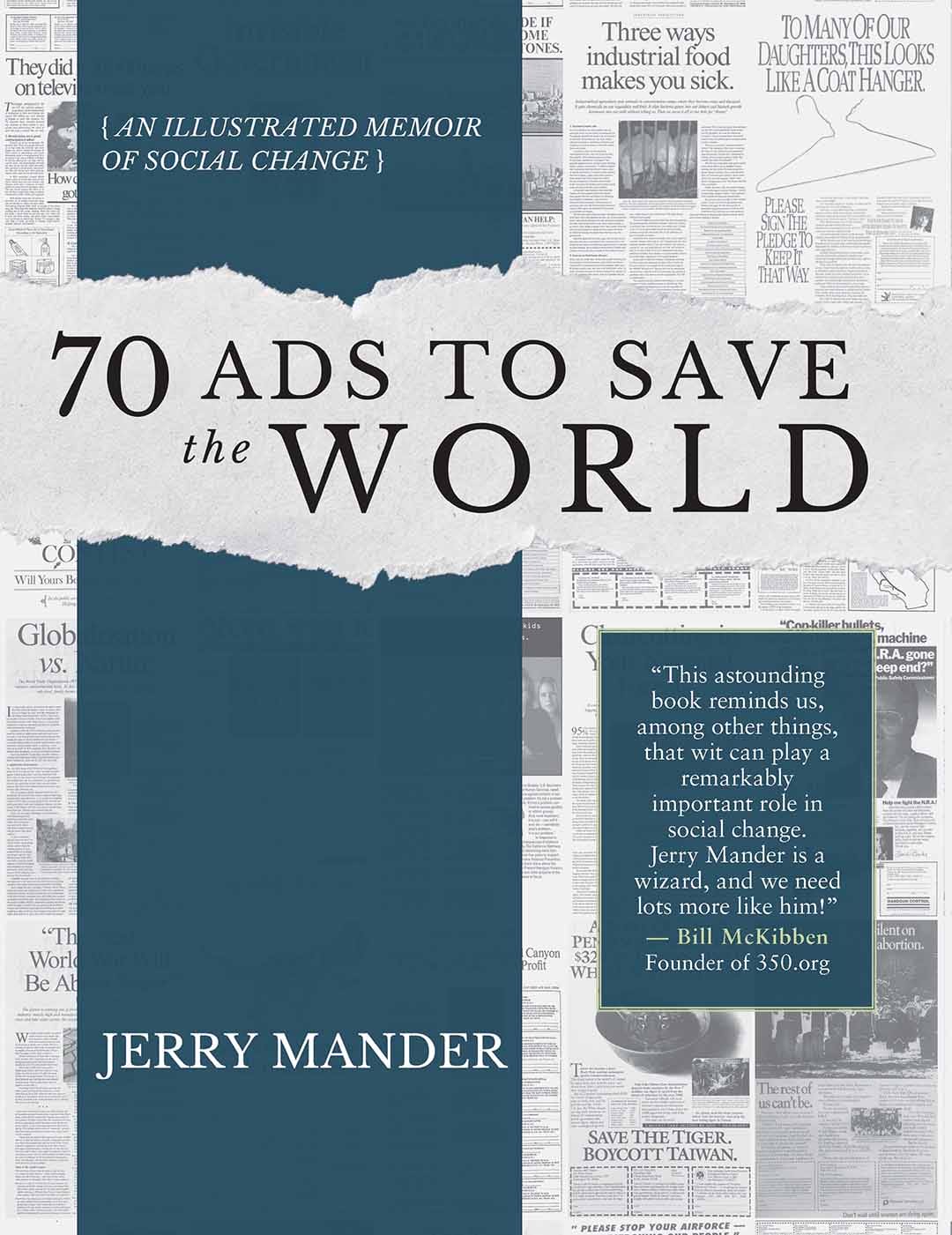Description
Chronicling his evolution from corporate advertising to non-profit and political advertising work, Mander takes readers on a journey through the origin stories of some of the most memorable anti-establishment campaigns from the second half of the 20th century. Many of Mander’s ads and campaigns for environmental and social justice issues were not only memorable decades ago, they remain relevant today.
As Mander explains in this book, he wrote several ads in the 1980s focused on abortion and reproductive rights for Planned Parenthood, and his team at Public Media Center took aim at the National Rifle Association in support of gun control. In 1966, Mander wrote an ad calling out the absurdity of a then newly-announced Pentagon initiative to drop toys over Vietnam, which resulted in a visit from the FBI.
A trailblazer in the pre-internet age, Mander’s strategies included bold calls to action. In work for the Sierra Club, for example, Mander helped produce print ads that featured letters to legislators readers could clip out and mail, a tactic at the time more commonly reserved for retail coupons.
Throughout 70 Ads, Mander explains how these campaigns came to be and offers advice for fellow low-budget, high-impact do-gooders. A personal accounting of his own work gives readers a primer on innovative thinking, while illuminating his inspiring story of aligning personal vision with collective impact.
Endorsements
An activist surveys socially conscious advertising strategies as he melds an illustrated memoir with advice and critiques of runaway capitalism and environmental damage.
With hundreds of millions of dollars spent daily on razzle-dazzle advertising, “corporate or commercial interests dominate mass-media, ‘free-speech’ ad expressions in the US,” notes career adman Mander (The Capitalism Papers, 2012, etc.).
Despite titans like the Jolly Green Giant and the Geico Gecko, this book argues, noncorporate campaigners operating on “exquisitely small budgets” have produced ads that have had “startling success” in public engagement. Many were one-offs with short newspaper runs that maximized their efficacy through a careful blending of jarring headlines and images with informational text.
As the co-founder of the United States’ first nonprofit ad agency, Public Interest Communications, and a lifelong environmentalist and critic of capitalism, Mander is perhaps the nation’s most experienced activist advertiser. He devotes significant attention to his own years in the profession, which included antisemitic experiences such as being told by a Park Avenue ad agency in 1959: “Your hair is too kinky; try Seventh Avenue.” That initial brush with the discrimination in the industry began the yearslong transformation of an Ivy League business school graduate “from Adman to Anti-Adman,” which led to his co-founding of PIC.
A skilled writer, Mander gives engaging behind-the-scenes looks into the opposite worlds of advertising and nonprofits, describing the backstories of effective ads for groups such as the Sierra Club, Planned Parenthood, and Friends of the Earth. Yet the undisputed stars of this book are the socially conscious advertisements themselves, which are reprinted in full-page, high-quality images and deal with topics from animal rights and the environment to gun control. Indigenous voices and perspectives, also heard in Mander’s previous books, are highlighted in critiques of environmental degradation and unfettered capitalism. The book ends with tips (“Secrets of Success”) for activists and nonprofits on how to create high-impact advertisements on a limited budget, though it leaves you wondering how the book’s print-centric approach applies to social media.
A beautifully designed history of iconic nonprofit advertisements.
— Kirkus Reviews


